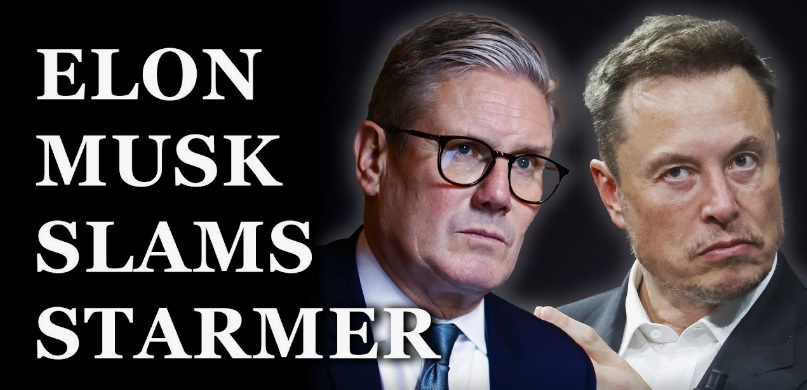
It was not the start to 2025 that Keir Starmer wanted or expected: in the early hours of New Year’s Day, Elon Musk lobbed a series of angry posts and allegations towards the British prime minister, engulfing his government in a very public fight, CNN reports.
The tech billionaire, who played a prominent role in US President-elect Donald Trump’s election campaign, has posted or reposted about child sex abuse cases in the UK more than 50 times this week.
He has called for Starmer and his safeguarding minister to be removed from power, for new elections to take place, and even for King Charles III to unilaterally dissolve parliament – something which hasn’t happened for nearly two centuries and would cause a constitutional crisis.
The topics represent the latest fascination of Musk, but his vexation is not new – as Trump’s inauguration nears, Musk has intervened with increasing ferocity in European politics and hailed far-right figures on the continent. He has repeatedly condemned the European Union’s institutions and policy decisions, and Italy’s president has warned him to stop meddling in the country’s affairs.
Musk now poses a delicate new challenge for Starmer. The British leader is taking great pains to charm Trump, while also hoping to hold back at home the growing influence of Reform UK, a populist, anti-immigration party that Musk has endorsed.
“He will help us enormously because he’s a hero figure, especially for the youth who really do admire this man,” Reform leader Nigel Farage said of Musk on the GB News channel. “He’s helping us because he has given us an understanding of how we did it in America. And that’s very useful to us.”
Musk’s tussles with Starmer’s Labour government did not begin this week.
He had previously called Britain a “police state” over its crackdown on far-right rioters, who sparked violent clashes on the country’s streets during the summer. He has long derided Starmer on his platform, and more recently hailed Reform UK, which since its founding in 2018 has capitalized on public frustration with the country’s two major parties and now rivals each of them in opinion polling.
He has prodded other European politicians too; in the past week the German government has accused Musk of attempting to influence the country’s February election, through his support for the far-right Alternative for Germany (AfD) party. The group been accused of resurrecting Nazi-era ideology and slogans, and its youth arm has been designated by German authorities as an extremist organization.
For most in Westminster, Musk’s anger – like much online trolling – remains little more than a sideshow.
But privately, some Labour MPs are asking themselves an obvious question: why us? Unlike in Germany, there is no impending parliamentary election through which Musk can exert his influence. An election is not due to be held in Britain for more than four years, and Labour’s government is relatively unpopular but, in parliamentary terms at least, rock solid.
Labour is desperate to build trust with the Trump administration; the government being shunned by the president-elect would only work in Farage’s favor, and there is huge economic incentive in working with Trump on, for instance, exemptions from his tariff regime.
The comments of Starmer’s ministers reflect that dilemma. In a tip-toeing remark, health secretary Wes Streeting told reporters: “Some of the criticisms that Elon Musk has made I think are misjudged and certainly misinformed, but we’re willing to work with Elon Musk, who I think has got a big role to play with his social media platform to help us and other countries to tackle this serious issue.”
A delicate dance for Britain’s right
It remains unclear how much influence Musk will have on Trump’s decision-making – particularly on foreign policy, which is firmly outside his official remit as a co-head of the new Department of Government Efficiency.
But his remarks are already having some impact in Britain – exposing the fault lines in a deeply divided and unusually malleable political landscape.
Kemi Badenoch, the leader of the opposition Conservative Party, reactively called for a “long overdue… full national inquiry into the rape gangs scandal.”
But her authority on the issue, as with so many others, is limited by her own involvement in an ousted but deeply disliked Conservative government.
The long hangover of the Conservative era has allowed Farage to position his movement, with some success, as the “real” opposition in Britain, and Musk’s growing interest in Reform represents an opportunity for Farage to further his standing.
He talks openly about hoping for financial backing from Musk, ahead of a round of local elections in May in which Reform is on pace to perform well.
For leading politicians across Britain’s ideological divide, Musk brings a heady mix of opportunity and risk.
read more in our Telegram-channel https://t.me/The_International_Affairs

 10:01 06.01.2025 •
10:01 06.01.2025 •






















